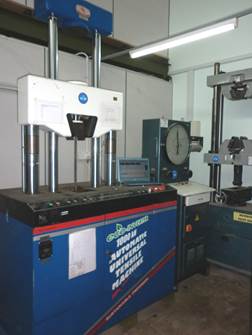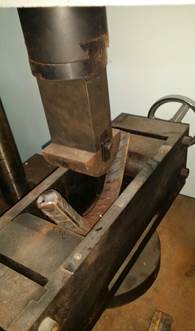Soil, Foundation, Geotechnical and Geological Specialist.......
|
|
|
|
Reinforcement Steel Bar Testing
a) Tensile Strength Test (MS 146 : 2006, MS ISO 6892 : 2002) (from R8 to R10, T12 up to T40 Steel Bar)
b) Bending Test
a) Tensile Strength Test
Tensile testing is a destructive test process that provides information about the tensile strength, yield strength and ductility of a material. Laboratory Kejuruteraan Warisan Timur Maju Sdn. Bhd. (WATIMA) performs the tensile test in accordance with industry specifications (listed below).
The tensile test or tension test involves applying an ever-increasing load to a test sample up to the point of failure. The process creates a stress/strain curve showing how the material reacts throughout the tensile test. The data generated during tensile testing is used to determine mechanical properties of materials and provides the following quantitative measurements: - Tensile strength, also known as Ultimate Tensile Strength (UTS), is the maximum tensile stress carried by the specimen, defined as the maximum load divided by the original cross-sectional area of the test sample. - Yield strength is the stress at which time permanent (plastic) deformation or yielding is observed to begin. - Ductility measurements are typically elongation, defined as the strain at, or after, the point of fracture, and reduction of area after the fracture of the test sample.
b) Bending Test
Bend tests deform the test material at the midpoint causing a concave surface or a bend to form without
the occurrence of fracture and are typically performed to determine the ductility or resistance to fracture
of that material. Unlike in a flexure test the goal is not to load the material until failure but rather to deform
the sample into a specific shape. The test sample is loaded in a way that creates a concave surface at the midpoint with a specified radius of curvature according to the standard in relation to which the test is performed. These characteristics can be used to determine whether a material will fail under pressure and are especially important in any construction process involving ductile materials loaded with bending forces. If a material begins to fracture or completely fractures during a three or four point bend test it is valid to assume that the material will fail under a similar in any application, which may lead to catastrophic failure. |



